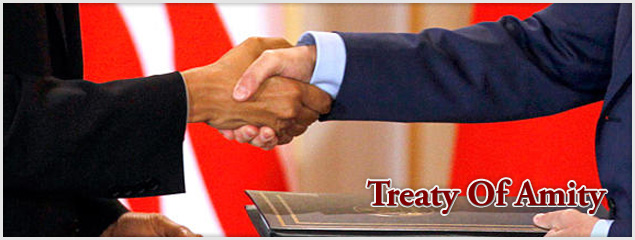Thailand law is very particular about foreign investment and foreign business partnership in Thailand. Although foreign investors are very welcome to start a venture here in Thailand, the Foreign Business Act of 1999 imposes restrictions that alien businesses have to comply with when making an investment in the country. For instance, there are business niches wherein foreigners are not allowed to compete with locals. In addition, the law also requires split ownership between foreign investors and local Thai businessmen in the incorporation of certain businesses.
There is no reason why a foreign businessman should feel discouraged about starting a company in Thailand. Thai law does allow for exemptions for specific provisions of the FBA. For example, businesses that are registered in countries that have bilateral business treaties with the country of Thailand get to enjoy exemptions from certain parts of the law. These countries are the United States, Japan and Australia.
US-Thailand Amity Treaty
Under this treaty, which signed by the two parties in 1966, Thailand law will recognize American-registered companies as Thai nationals. This will allow US companies to engage in business in Thailand without being hindered by the restrictions imposed by the FBA. To qualify for Amity Treaty exemption, the business must be incorporated under US law and should be majority-owned by US nationals. The Board of Directors must also be composed by majority of US or Thai nationals. The Amity Treaty does not apply in the communications, transport, banking, and domestic agricultural trading markets as well as in trades that involve fiduciary functions and the harnessing of local natural resources. In addition, the Treaty does not empower US nationals to purchase land under their names in Thailand.
Japanese Thai Economic Partnership Agreement
The JTEPA calls for the removal of tariffs on trade between the two countries. This means that companies from both countries will be able to import certain commodities between each other and will not have to pay duties for these products. As of 2012, for example, auto parts imported from Japan will be duty-free except for five specific types. Japan and Thailand expect the elimination of tariffs for the remaining five auto part types within the next five years. In 2012, Japan also agreed to let Thailand pay lower taxes on boneless chickens that Japan will import from the latter. Signed in 2007 by Prime Ministers Shinzo Abe and Surayud Chulanont, the ultimate goal of JTEPA is the elimination of the duties for 90% of the commodities that both countries trade by 2017.
Thailand-Australia Free Trade Agreement
The Thailand-Australia Free Trade Agreement promotes open access by Australia to Thai markets and vice versa. For instance, Australian investors can start businesses in the hotel and restaurant market, which is otherwise restricted under the Foreign Business Act of 1999, and own majority of the stocks in the companies that they start in those niches. The Thailand-Australia treaty aimed to lower tariffs on 94% of the commodities that Thailand imports from Australian sources by 2010. The two countries also target a duty-free import environment for Australian merchandise by 2015 or 2020.
Companies from these countries enjoy a better investment environment because of the exemptions provided for the bilateral treaties their home nations have with Japan. However, it does not mean that companies from other countries should be discouraged from investing in Thailand. Thailand has one of the best environments for foreign investment in Asia, and is very investor-friendly.






